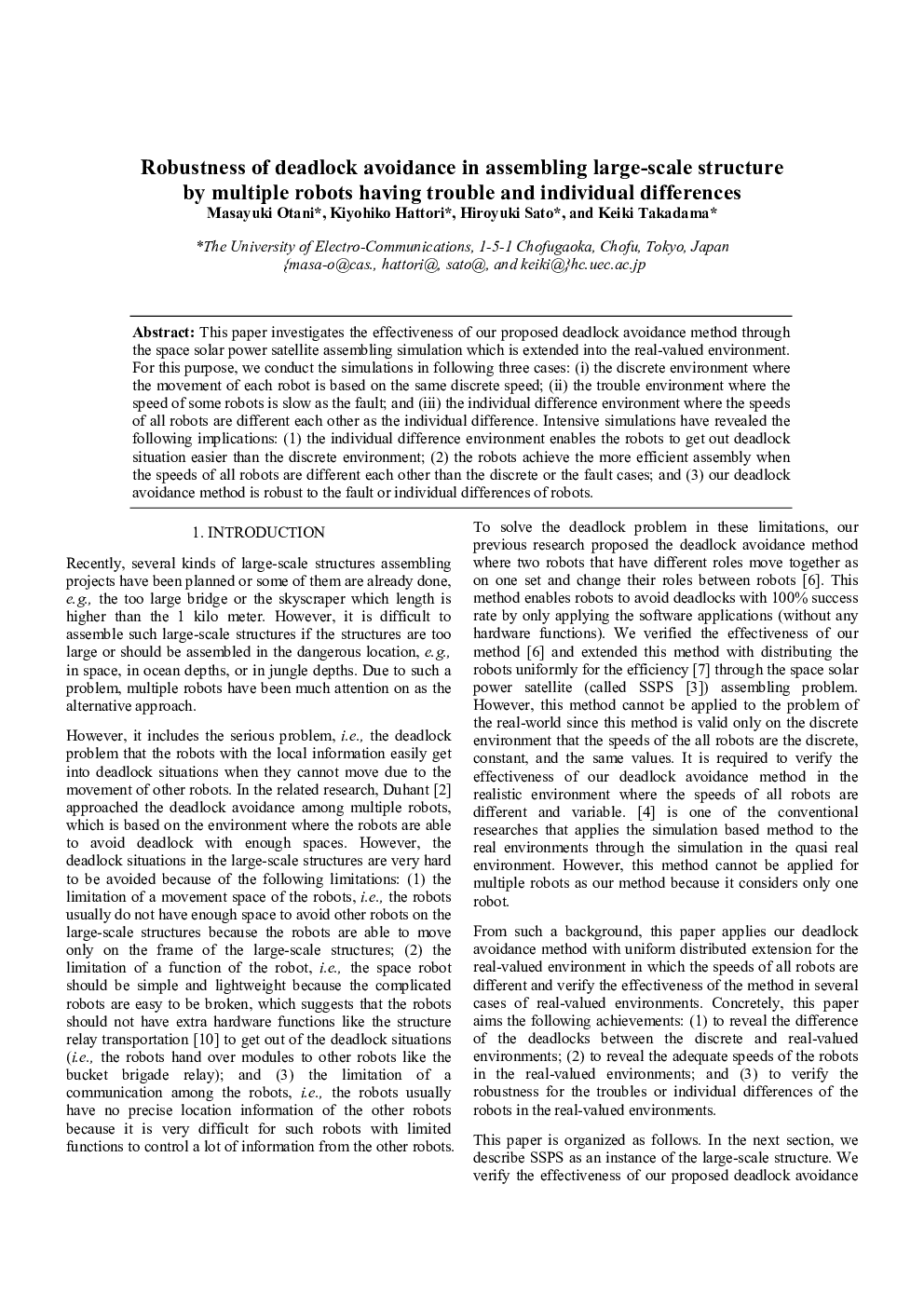| Article ID | Journal | Published Year | Pages | File Type |
|---|---|---|---|---|
| 716093 | IFAC Proceedings Volumes | 2010 | 6 Pages |
This paper investigates the effectiveness of our proposed deadlock avoidance method through the space solar power satellite assembling simulation which is extended into the real-valued environment. For this purpose, we conduct the simulations in following three cases: (i) the discrete environment where the movement of each robot is based on the same discrete speed; (ii) the trouble environment where the speed of some robots is slow as the fault; and (iii) the individual difference environment where the speeds of all robots are different each other as the individual difference. Intensive simulations have revealed the following implications: (1) the individual difference environment enables the robots to get out deadlock situation easier than the discrete environment; (2) the robots achieve the more efficient assembly when the speeds of all robots are different each other than the discrete or the fault cases; and (3) our deadlock avoidance method is robust to the fault or individual differences of robots.
